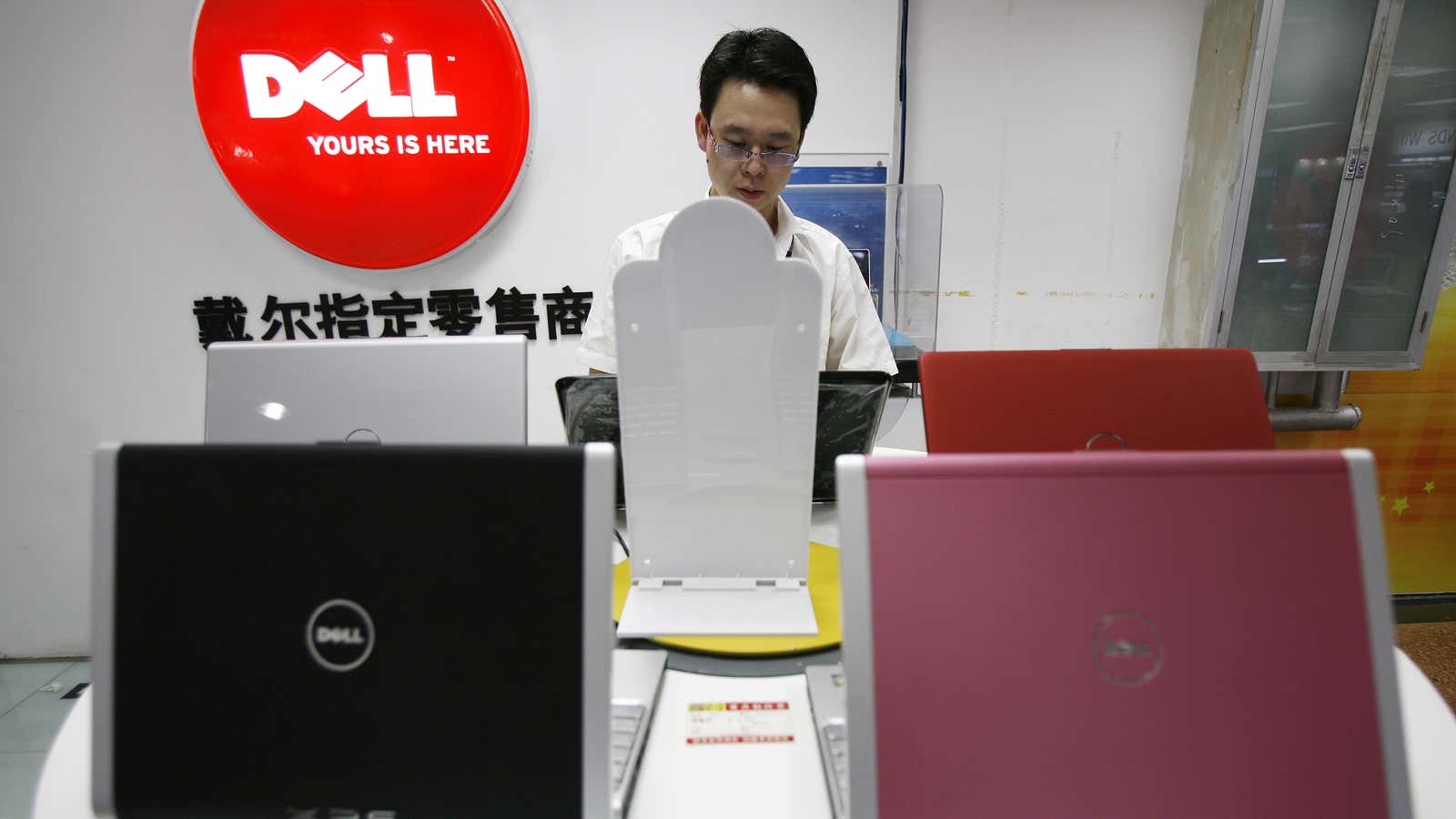Fresh rumors that Dell has been in talks with at least two private equity shops to take its business private have driven a massive rally in the company’s share price, up more than 12.7% to $12.28.
This isn’t the first time investors have gushed over the prospect of a leveraged buyout (LBO); just a month ago, a note from Goldman Sachs analyst Bill Shope sent the tech company’s stock price up nearly 7% merely by indicating that the possibility of a buyout sometime in the distant future could set a basic floor on the company’s share price.
But most analysts agree and have agreed for years that, while a buyout may look good on paper, it wouldn’t really address the legitimate failings of Dell’s business. The basic logic is as follows: Dell faces a secular decline in profit margins on computer hardware sales and needs to completely revamp its business to face a world in which computers are cheap and PC sales are declining.
First, let’s analyze the data. Dell, despite its recent loss of glory, is a massive company, at over $18 billion in market capitalization. In order for a company to buy out its stock and go private, it will need a lot of cash. Although Shope glowed over the fact that Dell had about $11 billion in cash on its balance sheet as of Nov. 2, the company would need substantially more than that to actually buy out its shareholders.
Not to mention that Dell’s owner and CEO, Michael Dell, owns a 14% stake in the company. An LBO is also a much cheaper venture than it would have been a year ago, as the company has lost almost a third of its value since that date. Finally, PE shops have a lot of cash left unspent that they’ve accumulated over the recession period, and they can probably offer debt pretty cheaply since interest rates are at an all-time low.
So why not blare the trumpets of the return of the LBO? First of all, even an $18 billion takeover would be a massive undertaking, requiring cooperation from multiple, often-warring PE shops. One need only remember the fierce LBO battles of the 1980s to remember just how difficult it is to get everyone to agree on a big deal, let alone two players with a bevy of egos and interests in the deal.
But perhaps more importantly, other than diminishing the light constantly being shined on the company, a buyout would probably hinder rather than help the company’s prospects for future growth: retooling its products away from hardware and towards enterprise technology and consulting. Fortune’s Shelley DuBois did a great job of explaining this reasoning back in 2010 (yes, an LBO was on the table then, too):
Dell, once the company everyone wanted to be, has become a low margin assembler. Going private might help it juice margins slightly, but not enough to come close to any of the new market leaders…Going private also presents an issue if Dell is going to pivot its focus to return to enterprise customers–one customer group that still values the Dell ability to quickly build, ship and support PCs. To get up to speed on enterprise quickly, Dell will have to purchase other companies who are ahead in the game. The best tool Dell has to buy and retain enterprise experts is, analysts believe, its stock.
Translation: don’t get your hopes up.
